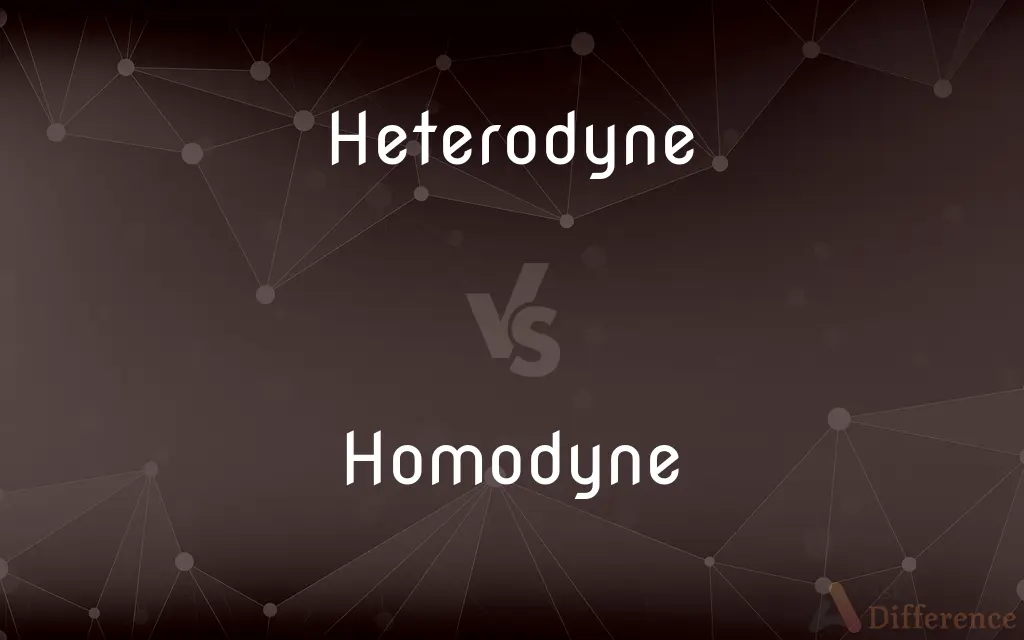Heterodyne vs. Homodyne — What's the Difference?

Difference Between Heterodyne and Homodyne
ADVERTISEMENT
Compare with Definitions
Heterodyne
A heterodyne is a signal frequency that is created by combining or mixing two other frequencies using a signal processing technique called heterodyning, which was invented by Canadian inventor-engineer Reginald Fessenden. Heterodyning is used to shift one frequency range into another, new frequency range, and is also involved in the processes of modulation and demodulation.
Homodyne
Pertaining to two waves which originate from a single radiation source, or have exactly the same frequency.
Heterodyne
Combining electrical signals of two different frequencies to produce two new frequencies, the sum and difference of the original frequencies, either of which may be used in radio or television receivers by proper tuning or filtering.
Homodyne
To combine two waves of identical frequency.
Heterodyne
To combine (a radio-frequency wave) with a locally generated wave of different frequency in order to produce a new frequency equal to the sum or difference of the two.
ADVERTISEMENT
Heterodyne
Of two oscillations: having two slightly different frequencies such that, when combined, they produce a beat
Heterodyne
The beat so produced
Heterodyne
Either the sum or difference of the two oscillations
Heterodyne
To produce heterodyne interference in a radio
Heterodyne
To change the frequency of a signal by such a process
Heterodyne
Combine (a radio frequency wave) with a locally generated wave of a different frequency so as to produce a new frequency equal to the sum or the difference between the two
Heterodyne
Of or relating to the the beat produced by heterodyning two oscillations
Share Your Discovery

Previous Comparison
Treason vs. Traitor
Next Comparison
Pesto vs. Pistou













































